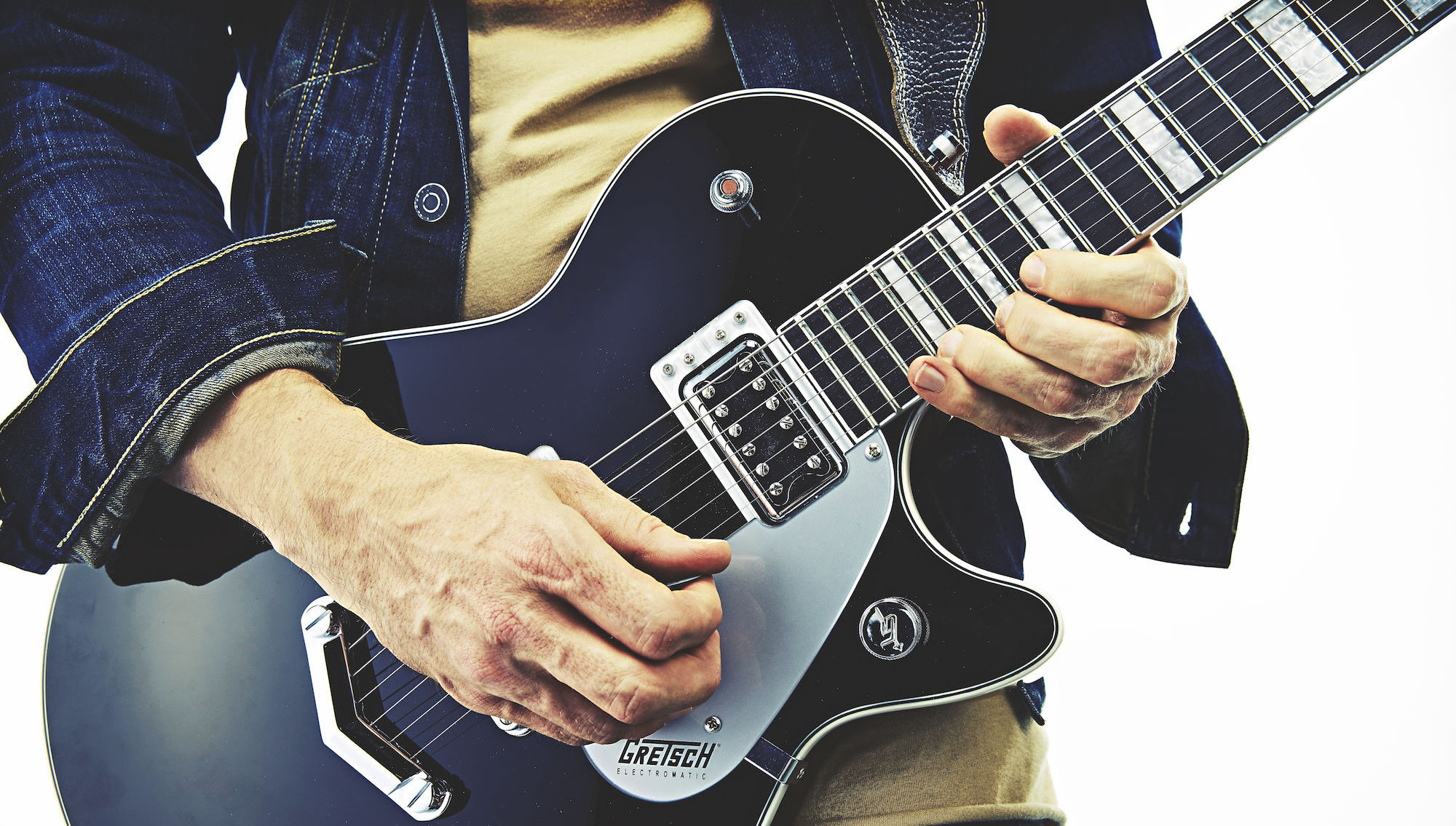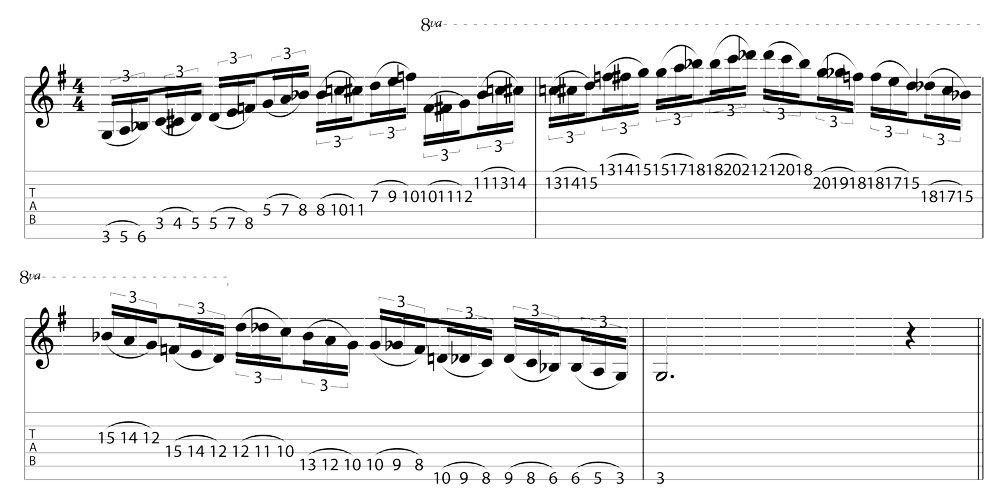Add New Colors to Your Pentatonic and Blues-Based-Playing with These Licks
Spend some time with the rockabilly scale and you'll have some stinging new additions to your lick library.

All the latest guitar news, interviews, lessons, reviews, deals and more, direct to your inbox!
You are now subscribed
Your newsletter sign-up was successful
Here's a somewhat extreme but useful application of the "modded pentatonic" concept. Take the open-position E minor pentatonic scale in Figure 1, add a note on each string and you’ll have the E rockabilly scale in Figure 1a, which is named for the rockabilly-approved descent in Ex. 1. Figure 2 shows a moveable shape in the key of G.



Like the minor pentatonic scale, the rockabilly scale has five moveable, overlapping fingerings, illustrated by Figures 3 through 6. Whenever you shift positions – whether ascending or descending – your index finger always plays the lowest of the three notes on each string.
Play each of these five fingerings starting from whichever string contains the root as the lowest note. From there, ascend and descend completely through the fingering, and finally re-ascend back to the starting root note, as in Ex. 2. Ex. 2 is written in a triplet rhythm, but you can play these fingerings with a straight eighth-note feel as well.

Once you’re comfortable playing and hearing the five fingerings, try connecting and shifting between them any way you can think of (see Ex. 3 for starters). You can play everything in this lesson with alternate, sweep, or hybrid picking, or you can use a legato technique – whatever works for you.
Spend some time with the rockabilly scale, and you’ll have another fairly simple, highly effective way of adding new colors to your pentatonic and blues-based-playing. Go cat go!
All the latest guitar news, interviews, lessons, reviews, deals and more, direct to your inbox!
